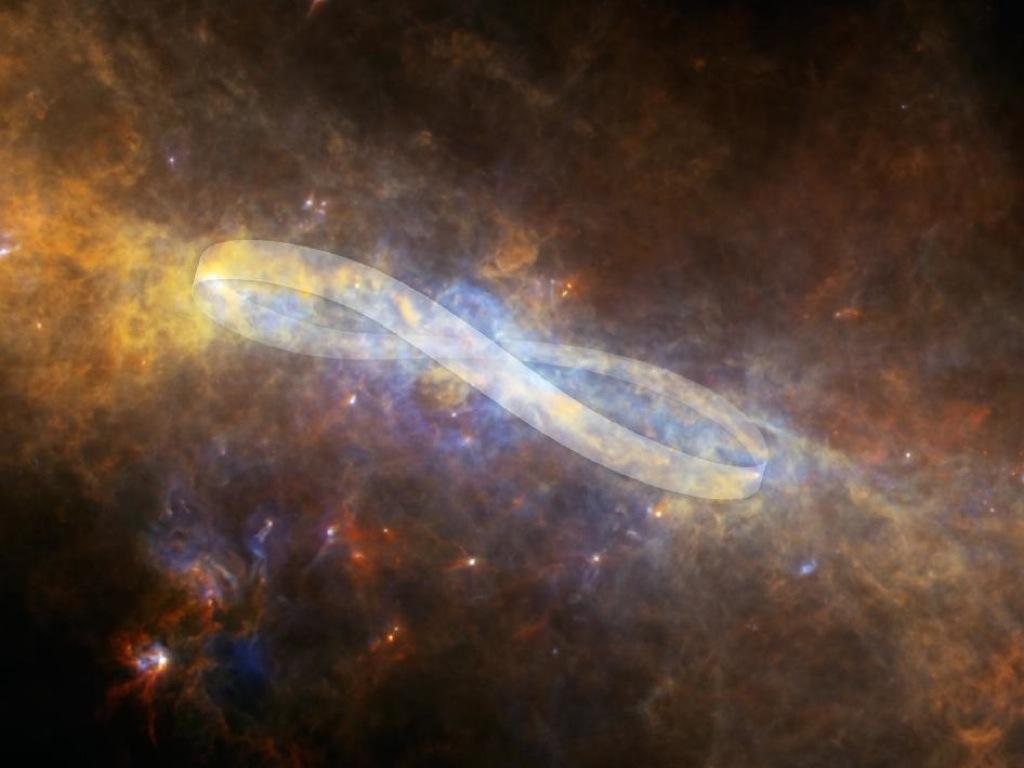Europe’s Herschel space telescope decommissioned and sent floating
(Annotated version) In a strange twist of science, astronomers using the Herschel Space Observatory have discovered that a suspected ring at the center of our galaxy is warped for reasons they cannot explain.
Europe's deep-space Herschel telescope was decommissioned Monday and will be free to float around the Sun for eternity.
Herschel, the largest and most powerful infrared telescope, ended its successful four-year mission to observe the galaxy.
The telescope was said to have logged more than 35,000 scientific observations and 25,000 hours of data.
"We had a sophisticated spacecraft at our disposal on which we could conduct technical testing and validate techniques, software and the functionality of systems that are going to be reused on future spacecraft," said Herschel's spacecraft operations manager, Micha Schmidt, according to AFP.
By tracking infrared wavelengths, the telescope found data that, in the BBC's words, has "transformed our understanding of star formation and galaxy evolution."
The 1.1 billion-euro telescope was launched in May 2009 with a fixed amount of liquid helium to cool it while it flew about 1.3 million miles from Earth towards the Sun.
More from GlobalPost: Mysterious water on Jupiter came from comet smash
The coolant will evaporate over the years and the instruments begin to heat up, until the craft eventually melts into the Sun.
Herschel's discoveries were numerous and diverse, but only astronomy specialists would understand their significance.
It was, however, said to have found the first oxygen molecules in space—a discovery whose importance anyone can appreciate. Herschel also discovered how water got to Jupiter via a comet.
The telescope was 23.3 feet in length and 13 feet wide.
It was named after Sir William Herschel, the German-born British astronomer who discovered Uranus in 1781 and infrared radiation in 1800.
Every day, reporters and producers at The World are hard at work bringing you human-centered news from across the globe. But we can’t do it without you. We need your support to ensure we can continue this work for another year.
Make a gift today, and you’ll help us unlock a matching gift of $67,000!
